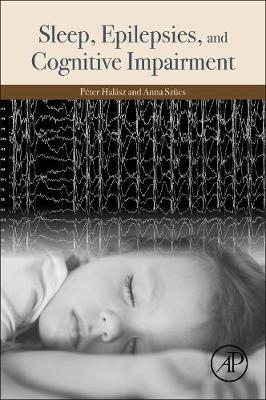
Sleep, Epilepsies, and Cognitive Impairment
Academic Press Inc (Verlag)
978-0-12-812579-3 (ISBN)
The common pathophysiology binding together the diverse manifestations of epilepsies is the exaggeration of plastic functions of the brain involving the hippocampus, the non-specific thalamocortical system and the perisylvian cognitive network. Epileptic derailment seems to be the price for the latest achievements of the mammal and human brain; namely the highly developed ability to change and learn. The contemporary results of sleep research provide new viewpoints to explain why sleep and epilepsy are bedfellows. Converging evidence supports the concept that one of the most important biological roles of NREM sleep is the renewal of synaptic balance ensuring learning ability from one day to the next and consolidation of new memories. Epilepsy and NREM sleep use overlapping structures and functions, therefore epilepsy beginning in early childhood may interfere with sleep plastic functions. NREM sleep, which affects original learning and memory, may become the hidden source of chronic cognitive impairment when epilepsy occurs during sleep and blocks the plastic processes.
Sleep, Epilepsies and Cognitive Impairment abandons the academic classification of epilepsy by following the system epilepsy concept, binding major epilepsies with structures and functions of physiological brain systems. It tries to show within this system the close interrelationship between sleep, epilepsy and cognition.
Neuroscientists, clinical epileptologists and neurologists interested in brain processes underlying brain plasticity, sleep and epilepsy will find this book thought provoking. It offers good "brain-gymnastics" for reconsidering the ideas on epilepsy.
Dr. Halász is an acknowledged epileptologist, and sleep researcher. He is an emeritus professor of Neurology at the National Institute of Clinical Neuroscience, Budapest. He is the author of more than 200 international publication, mainly on epilepsy and sleep, and several books. He is also a life member of the Hungarian Epilepsy League leading board. Dr. Szucs is a neurologist and psychiatrist, and chief physician in the National Institute of Clinical Neuroscience. She is a sleep expert and neurophysiologist, as well as an author of 50 international publications and 2 books
1. General considerations2. The network concept of epilepsy3. Activation of epilepsy in sleep4. Absence Epilepsy as system epilepsy of the sleep promoting function5. Nocturnal Frontal Lobe Epilepsy as epilepsy of the arousal system from sleep6. Juvenile Idiopathic Myoclonic Epilepsy as the common disorder of the cortoco-thalamic and motor system7. Reading Epilepsy as epilepsy of the speech function8. Medial Temporal Lobe Epilepsy as epilepsy of the limbic system of declarative memory processing 9. Peri-sylvian epileptic network: childhood idiopathic benign regional hyperexcitability (HIEC) conditions (Rolandic Epilepsy, Panayitopoulos syndrome)- Common features in HIEC conditions10. Malignant transformation of HIEC conditions to Electrical status Epilepticus in Sleep in global (ESES) and regional (Landai-Kleffner Syndrome) forms11. The spectrum disorders of the peri-sylvian epileptic network 12. Epileptic Encephalopathies (West Syndrome, Lennox-Gastaut Syndrome – Common features of Epileptic Encephalopathies13. The common mechanisms in childhood epileptic encephalopathies with immense sleep activation and cortical pathological HFO activity 14. The outstanding role of interictal dicharges (IEDs) in epileptic encephalopathies and in cognitive impairment of epilepsy15. The role of slow wave sleep in the development and progression in system epilepsies16. Epilepsy types in another way
| Erscheinungsdatum | 22.01.2018 |
|---|---|
| Verlagsort | San Diego |
| Sprache | englisch |
| Maße | 152 x 229 mm |
| Gewicht | 290 g |
| Themenwelt | Medizin / Pharmazie ► Medizinische Fachgebiete ► Neurologie |
| Naturwissenschaften ► Biologie ► Humanbiologie | |
| Naturwissenschaften ► Biologie ► Zoologie | |
| ISBN-10 | 0-12-812579-9 / 0128125799 |
| ISBN-13 | 978-0-12-812579-3 / 9780128125793 |
| Zustand | Neuware |
| Haben Sie eine Frage zum Produkt? |
aus dem Bereich


